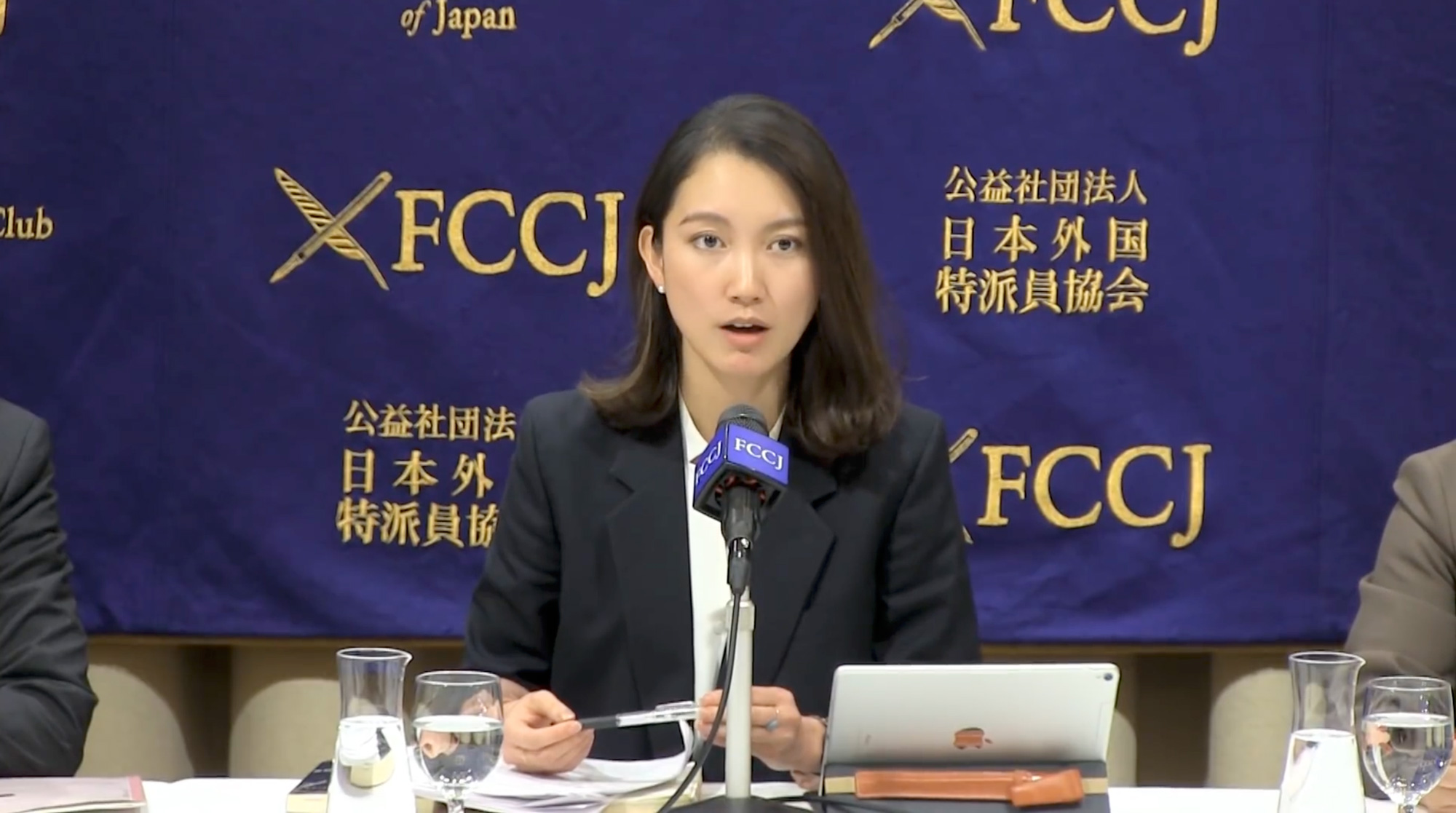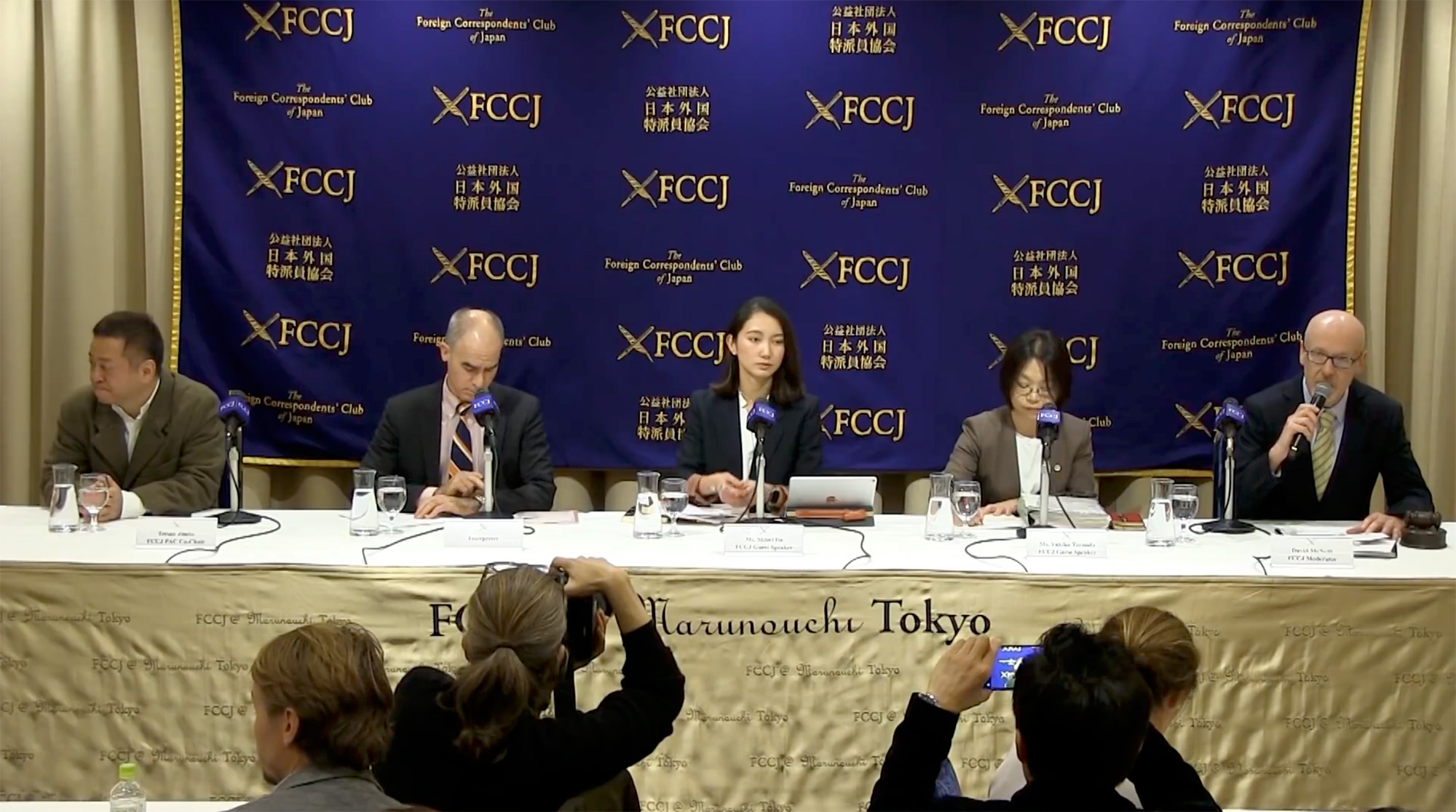Issue:
December 2024
Shiori Ito’s documentary Black Box Diaries is a disturbing account of her sexual assault and its aftermath

Journalists normally prefer not to become the story. Shiori Ito is no different, but as a survivor of sexual assault, she felt she had no choice but to grasp the nettle. Ito’s documentary, Black Box Diaries, lays bare her life since she was raped in April 2015, and how her courage triggered a national debate about sexual assault at the height of the #MeToo movement in Japan.
Japanese laws that deal with nonconsensual sex stretch back 110 years, and speaking up about sexual assault is regarded as taboo.
In Japan, 96% of sex crimes go unreported. In Ito’s case, the charges against the alleged perpetrator, Noriyuki Yamaguchi, a former Washington bureau chief for TBS with ties to the assassinated prime minister, Shinzo Abe, were suddenly and mysteriously dropped.
Ito, who wrote and directed the documentary, has yet to find a distributor for Black Box Diaries in Japan, even though it has won critical accalim at film festivals overseas.
After tense court hearings, police interrogations bereft of decency and privacy, public shamings and online abuse – the most vicious of which came from Japanese women – Ito has found unlikely support among Chinese feminists.
Members of a Chinese female artists’ group, some of whom were survivors of sexual assault, made a beeline for Ito after a recent screening in New York. They laughed and cried together. Ito implored them not to give up their struggle.
That she was able to make this documentary is remarkable.
I had been following Ito’s case since I moved from the U.S. to Japan in 2017. My arrival coincided with the peak of the global #MeToo movement. The quickly changing news cycle meant I wasn’t up to date with developments in her story, although I was aware of court hearings and other news of journalistic interest. The documentary, however, opened my eyes to the suffering survivors of sexual assault endure in the shadows.

It was suffocating to see Ito having to endure legal and societal obstacles after she decided to speak up. Her treatment by the police, prosecutors, Abe supporters, as well as some members of the public, appeared to worsen her trauma, and even made her contemplate suicide.
Her interaction with an investigator, “A”, who is sympathetic, sums up the problem with the Japanese legal system. In the film he admits he can only do what his superiors tell him to do. “Otherwise, I look like a traitor,” he says.
Itō’s gentle and almost apologetic voice on the phone, even when she is trying to clarify the most basic facts about her case without causing trouble is heart-breaking. Her appreciation of even the smallest gesture of sympathy is hard to ignore. Her meeting with the taxi driver who took her and Yamaguchi, who has denied the allegations, from an izakaya where they had spent the evening to a hotel, despite her requests to be dropped off at a train station, is a particularly powerful example.
Arguably the most disturbing part of the film is a three-minute clip with no sound. Footage from the hotel CCTV from around 11 pm on April 4, 2015, shows a clearly incapacitated Ito being dragged by Yamaguchi the taxi into the hotel lobby as the hotel doorman looks on. The doorman would later testify on Ito’s behalf.
Then there is a scene in which a trembling Ito asks the doorman in a telephone conversation if she can use his name and testimony in court. He agrees: “It’s the least I can do, and it’s nothing compared to what you have gone through. It is a rare moment of kindness that brings Ito to tears.
Ito comes under pressure from members of the public to behave like a “decent woman”. In one scene, shot one the morning a court hearing, she makes sure she buttons up her blouse to avoid giving the “wrong impression”.
Although their identities are hidden, Ito’s secret audio recordings of her conversations with people who appeared in the documentary have caused controversy. Ito has defended her actions, saying she had taken the precaution of recording the conversations in case something happened to her.
While no criminal charges resulted, in 2019, Ito secured justice, of sorts, when a court ordered Yamaguchi to pay her ¥3.3m (£23,000) in damages in a civil suit and dismissed his ¥130m countersuit.
Black Box Diaries has uplifting moments, too. In one, a defiant Ito appears at a press conference at the FCCJ and looks directly at Yamaguchi, who is in the audience awaiting his own appearance in front of the media.
Ilgin Yorulmaz is a freelance journalist and former 2nd Vice-President of the FCCJ. She also serves as co-chair of the FCCJ Freedom of Press Committee.

